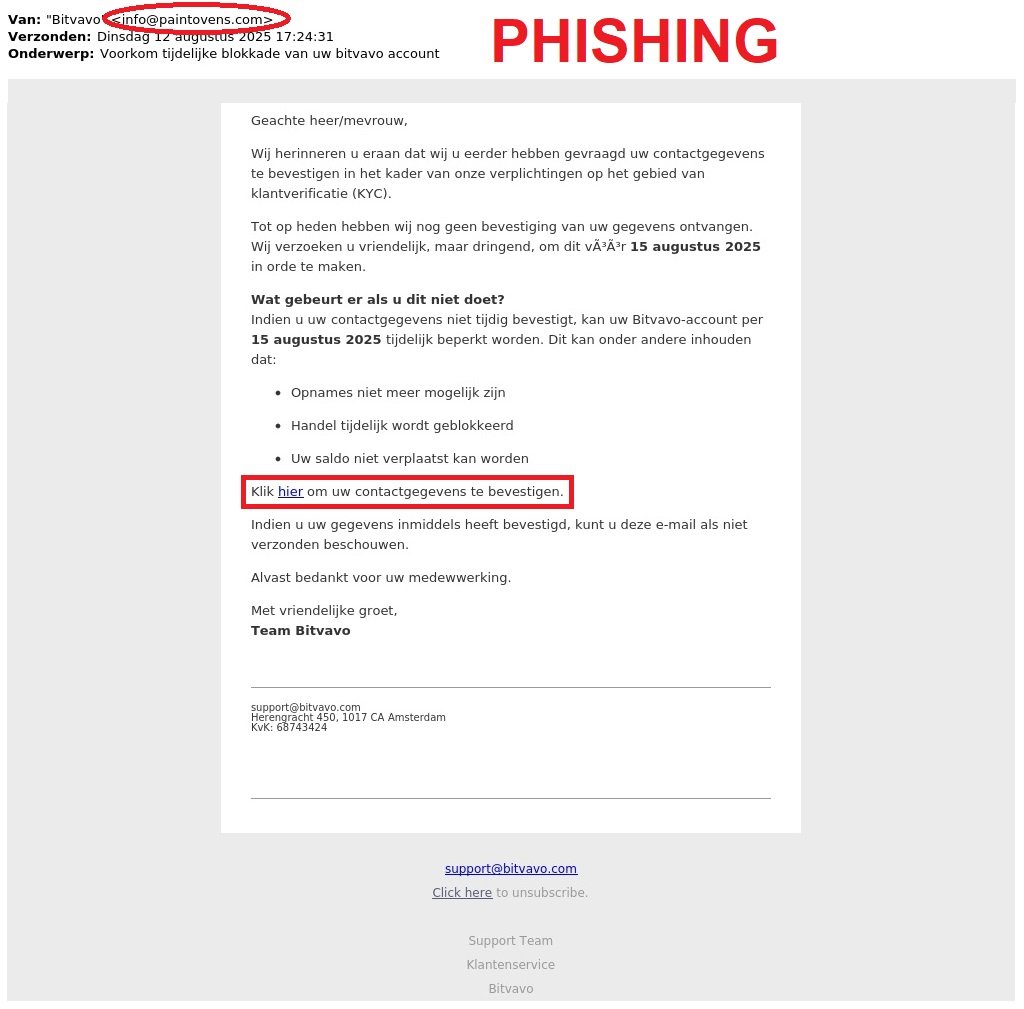This week, there is a newcomer in the top 5 most popular phishing messages in our country. There are many fake emails in circulation that appear to come from Bitvavo. Bitvavo is a Dutch provider of services in crypto investments. Scammers try to deceive you by asking you to confirm your details. One sign that it is phishing is the threatening tone that your account will be restricted.
How can you recognise phishing emails?
You can check the sender and the link. Move your mouse over the link without clicking and check the website address. Is it not the official website? Then it is most likely phishing.

Don't fall into the trap!
Learn how to recognise fraudulent messages: Find out more at surfwithoutworries.safeonweb.be
What to do?
- Do not click on a link in a suspicious message, do not open attachments and do not download applications if you are asked to.
- Suspicious emails can be forwarded to suspicious@safeonweb.be.
- Suspicious text messages can also be forwarded. Take a screenshot and send it to suspicious@safeonweb.be. The content is then processed automatically.
Did you click on a suspicious link?
- If you have clicked on the link, do not complete the fields and terminate any interaction.
- NEVER give out personal codes.
- If you have entered a password that you also use elsewhere, change it immediately.
Have you been scammed?
- If you have lost money or are being extorted, we recommend that you file a report with your local police straight away.
- Contact your bank and/or Card Stop on 078 170 170 (+32 78 170 170 from abroad) if you have passed on bank details, money is disappearing from your bank account or if you have transferred money to a scammer. In this way, any fraudulent transactions can be blocked.
